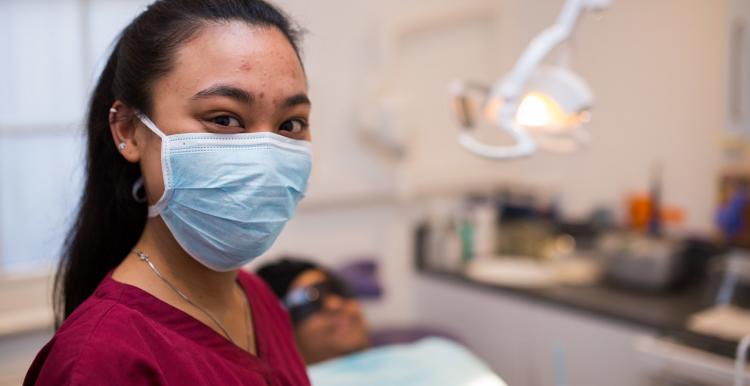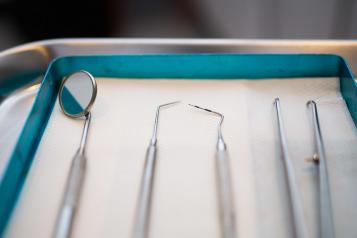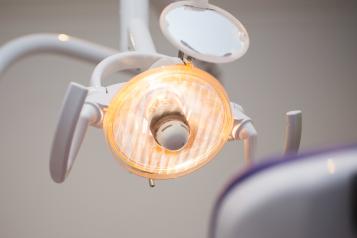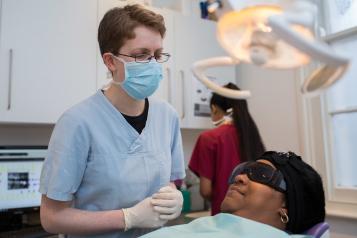An update on the restarting of NHS dental services in the Midlands

Almost all dental practices are now open to provide face to face care and 90% are able also to offer aerosol-generating (AGP) procedures (anything involving the use of powered instruments like drills or scalers). There are also currently 93 Urgent Dental Care Centres across the Midlands providing urgent care for those patients who do not have access to a regular dentist or whose dentist is not yet offering the full range of services.
We know that people are concerned about difficulties being experienced at present in accessing dental services and, in particular, about whether or not any further lockdown measures will affect this. Patients should be reassured that dentists have been trained and equipped to manage patients safely during the pandemic and that most practices will continue to stay open during any future national or local lockdown. Accessing urgent medical or dental care remains important and it would only be less essential or routine appointments that may need to be cancelled if restrictions were imposed e.g. on non-essential travel.
All people who have an urgent dental care need should have access to treatment. Due to the infection control and social distancing measures in place the capacity for dental practices to see patients is currently still very restricted and likely to remain so. Current enhanced infection control measures also include the requirement for each surgery to be left for up to an hour between patients prior to deep cleaning following an AGP procedure. The management of urgent patients and those in vulnerable groups is the priority. There is no restriction on the provision of routine dental care but, in many cases, practices will be prioritising the most vulnerable patients. This means that some regular attenders with good oral health are likely to have to wait for routine appointments.
AGP or aerosol-generating procedures are anything involving the use of high-speed drills and include simple procedures such as a scale and polish, previously provided as part of a routine check-up. Where these procedures cannot be avoided enhanced PPE is required and other strict safety measures need to be put in place.
In many cases you can expect to have to speak to a dentist by phone or video consultation first prior to being seen in the dental surgery – especially when you have an urgent dental problem. Dental practices can prescribe antibiotics or painkillers if needed and this can be done by phone.
The advice for people seeking NHS dental care is as follows:
People should continue to contact their local dental surgery by phone for advice on dental care and treatment. Out of surgery hours patients should contact NHS 111. Patients are still expected to pay normal dental charges (unless exempt) but should not be charged extra. NHS patients should not be told that they can only access care privately. In some cases you may have to wait longer than normal for an appointment for treatment (particularly for AGP procedures) as dentists will be prioritising the most urgent cases.
If you do not have a regular dentist or have not recently accessed NHS Dental care then please contact NHS 111. It is often quicker and easier to use the online system rather than phoning. You will then be directed to a dental practice who can assess you by phone and if needed you will be offered face to face care at a practice with capacity to see you. This may be an urgent dental centre.
Anyone who feels unwell or has any Covid-19 symptoms or is self-isolating following contact from NHS Test and Trace should not visit their normal surgery even if they have a confirmed appointment. It is important for patients to be honest about whether they are symptomatic or have been asked to self-isolate. Dedicated urgent dental centres continue to operate where symptomatic or self-isolating patients needing urgent care can be seen and treated.


